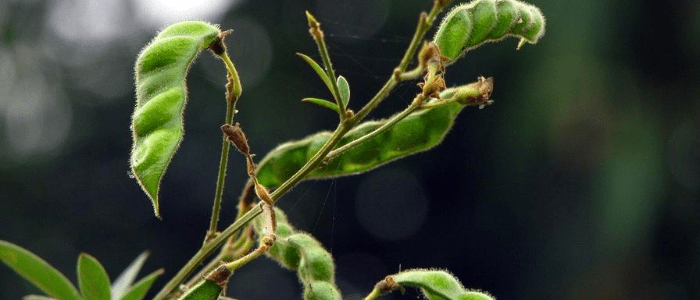A peek behind the paper: Rajeev Varshney on genetic molecular markers to accelerate genetic gains in crops

Take a look behind the scenes of a recent expert opinion article published in BioTechniques entitled ‘Genetic molecular markers to accelerate genetic gains in crops’, as we invite author, Rajeev Varshney from the Center of Excellence in Genomics & Systems Biology at the International Crops Research Institute for the Semi-Arid Tropics (ICRISAT; Hyderabad, India) to shed some light on his recent research.
Please can you give us a short summary of your article, ‘Genetic molecular markers to accelerate genetic gains in crops’?
Accelerating and delivering genetic gains in smallholder farmers’ fields is high on international agricultural research agenda, especially in Asia and sub-Saharan Africa. This will help improving crop productivity, better yield and higher income for farmers and most importantly achieving food and nutrition security in developing countries.
Conventional plant breeding approaches have contributed immensely to this; however, they have limitations in terms of delivering improved varieties with desired traits in a time-bound manner. Genomics tools and technologies have changed methods of plant breeding in a positive direction.
Since the boom of the genomic sequencing era, several advancements and innovations originating in the field of molecular markers are enhancing the pace of crop improvement. Over the decades, significant advances have been made in development of molecular markers and their deployment in crop breeding programs. In this article, we provide an update on the evolution of marker technologies and new applications for accelerating genetic gains in crop breeding programs.
What led you to carry out this work?
The crop productivity in several semi-arid tropic legume crops such as chickpea, pigeonpea and groundnut, has remained low for the last several decades. Genomics-assisted breeding or translational genomics approaches, due to limited availability of genomic resources, have not been used until recently in several of these crops. With an objective of developing genomic resources and using them for crop improvement, we at the Center of Excellence in Genomics & Systems Biology, ICRISAT in collaboration with our partners from national/international organizations, initiated efforts to develop large-scale molecular markers, transcript sequence data, genetic, transcript and physical maps, cost-effective and high-throughput marker genotyping platforms, as well as decoding genome sequences of several crops.
While analyzing the sequence data, several computational genomics tools and databases were developed. Furthermore, in collaboration with scientists/staff from ICRISAT and partner organizations in Asia and Africa, the genomics research was translated successfully into developing superior lines in several ICRISAT mandate crops.
Since significant advances have been made in translating our research results from “genome-to-field,” it is important to put together a consolidated review of available contemporary molecular marker technologies and their applications in crop improvement programs for the benefit of the global scientific community, especially for early-career researchers. This is why we put together this expert opinion.
What were the key conclusions; what impact do you foresee this work having?
Over the decades, several varieties of our mandate crops with varying traits – from pest and disease resistance to higher productivity and climate resilience have been developed by ICRISAT and its partner organizations, and benefitted several countries around the world. Also, in 2019–2020, NARS partners in India and Ethiopia, in collaboration with ICRISAT, released several remarkable improved varieties developed through genomics-assisted breeding: Pusa 10216 (drought-tolerant chickpea); MABC-WR-SA-1 (Fusarium wilt-resistant chickpea); Girnar 4 and Girnar 5 (high-oleic groundnut) in India, and Geletu (drought-tolerant chickpea) in Ethiopia.
This also substantiates that deployment of genomics tools not only help in the development of molecular markers with desired traits in lesser time but also accelerate the delivery of improved crop varieties in farmers’ field. We would like to reiterate that availability of genomics tools and technologies in so-called orphan crops is not a challenge anymore, but it is the need of the hour to use translational genomics approaches in crop breeding programs to accelerate the rate of genetic gains.
In summary, molecular markers are among the many genomic tools available in the breeders’ toolkit. Adopting integrated breeding approaches by carefully selecting the right tools will help in accelerating the rate of genetic gain in crop breeding programs. These tools should be combined with analytical and decision support tools (ADSTs) through open-source platforms; this approach, together with the adoption of shared genotyping services like high-throughout genotyping (HTPG) and data management systems, would enhance the precision of crop improvement programs.
What work are you hoping to do next in this area?
We at ICRISAT are currently focused on modernizing crop improvement programs by deploying and integrating cutting-edge genomics and molecular breeding technologies. Together with state-of-the-art genomics facilities at CEGSB and international partnerships, we have embarked on the sequencing of large-scale germplasm collection for understanding genome architecture and cataloguing haplotypes.
In parallel, we have initiated the optimization of new “genomic breeding” approaches, such as “forward breeding,” “haplotype-based breeding” and “genomic selection,” to integrate into crop improvement pipelines for developing improved crop varieties with climate resilience and market-preferred traits. We very much hope an integrated approach of sustainable agriculture will be serving our stakeholders – the smallholder farmers – in the most-effective manner.
 Rajeev Varshney, an agricultural scientist, specializing in genomics, genetics, molecular breeding and capacity building in developing countries, is passionate about innovation, design & science to tackle problems in international agriculture. He is currently serving as Global Research Program Director – Genetic Gains; and Director, Center of Excellence in Genomics & Systems Biology at the ICRISAT.
Rajeev Varshney, an agricultural scientist, specializing in genomics, genetics, molecular breeding and capacity building in developing countries, is passionate about innovation, design & science to tackle problems in international agriculture. He is currently serving as Global Research Program Director – Genetic Gains; and Director, Center of Excellence in Genomics & Systems Biology at the ICRISAT.
In his research career of more than 20 years, Varshney has made centrally important contributions to improving food security in several developing countries by creating genomic resources of several “orphan” tropical crops including pigeonpea, chickpea, groundnut and pearl millet.